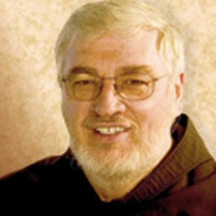
Readings:
Reading I: Wisdom 6:12-16
Psalm: 3:2, 3-4, 5-6, 7-8
Reading II: 1 Thessalonians 4:13-18
Gospel: Matthew 24:42a, 44
Paul’s comments on the return of Christ caused some consternation among the Christians of Thessalonica. The Thessalonians thought that Paul asserted that the Second Coming was imminent—perhaps even in his and their own lifetime. The text of today’s second lesson was Paul’s attempt at clarification. Paul intended his words to be comforting but they had the opposite effect. The Thessalonian Christians were worried about the fate of those who will have died before Christ’s return. What was going to happen to them? Will they be cut off from those who will be alive at the end of this age?
As the Apostle and later generations of Christians learned, speculating about the precise timing of Christ’s return is counterproductive. Paul tried to clarify his remarks by describing Christ’s return using imagery that his readers could appreciate, but Paul’s use of this imagery (archangels, trumpets, believers caught up in the clouds) made things worse. In the modern period, Christians not familiar with the significance of Paul’s apocalyptic imagery have understood his words as describing actual events that will precede the return of Christ. Today’s passage from First Thessalonians has become part of the extremely complex eschatological scenarios developed by fundamentalist Christians. Unfortunately, these speculations have obscured the heart of Paul’s teaching about Chris’s return and the world to come.
The heart of the Apostle’s thought about the effect of Christ’s return for believers is a clause found in the longer form of the second reading: “. . . we shall always be with the Lord” (v. 17). The “we” underscores the communal dimension of life in the world to come that Christ will bring about when he returns. The Christian vision of the future is not about individuals surviving death. It is about the transformation of this world into the world that God originally created it to be—a world of justice, peace, and love. Those who will have a place in the world to come “will always be with the Lord.”
Christians are already “in Christ” because of their baptism. Those believers who have died remain in Christ even in death as they await the full revelation of Christ’s victory over sin and death. The Apostle assures those who worry about the fate of their beloved dead that God will raise all those who are in Christ just as God raised Jesus from the dead. Christians then ought not grieve over their dead as if there was no hope. The life we live “in Christ” today will be brought to perfection in the world to come where sin and death will have no place. Believers then can look forward to this future with the confidence that comes with faith and hope because “. . . we shall always be with the Lord.” For this we give thanks.
Leslie J. Hoppe, OFM
Professor Emeritus of Biblical Studies